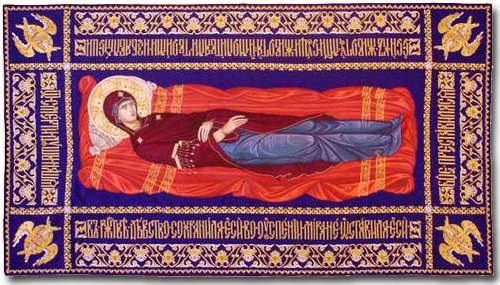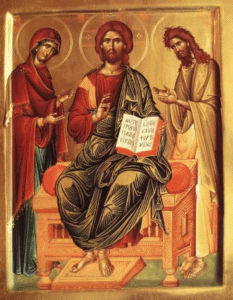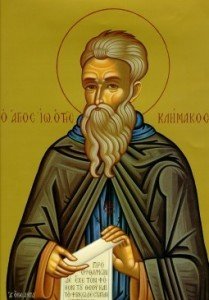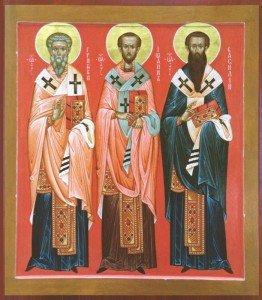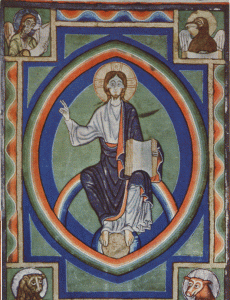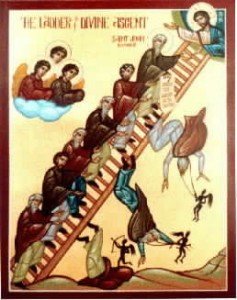 Step 24 on John’s Ladder begins a new section, namely emphasis on the Higher Virtues. Thus the first step in this section is Meekness/Simplicity.
Step 24 on John’s Ladder begins a new section, namely emphasis on the Higher Virtues. Thus the first step in this section is Meekness/Simplicity.
St. John introduces this Step by defining what, in his estimation, meekness is: He writes:
Meekness is a mind consistent amid honor or dishonor. Meekness prays quietly and sincerely for a neighbor however trouble-some he may be. Meekness is a rock looking out over the sea of anger which breaks the waves which come crashing on it and stays entirely unmoved. Meekness is the bulwark of patience, the door, indeed the mother of love and the foundation of discernment. It is meekness that earns pardon for our sins, gives confidence to our prayers and makes a place for the Holy Spirit.
You will recall that meekness was also addressed in Step 8. It was related to freedom from anger. Now the Ladder leads us to the higher level of meekness: simplicity, which is the first fruit of an even greater virtue, humility. Meekness is the precursor of all humility. The highest form of meekness is the fruit of obedience and freedom from anger. Thus it is the enemy of anger and the spirit of true leadership, an imitation of Christ and the virtue that makes our hearts receptive to the Holy Spirit.
St. John tells us that meekness works alongside obedience, checks frenzy, curbs anger. It is a minister of joy, an imitation of Christ, the possession of angels, a shackle for demons, a shield against bitterness. The Lord finds rest in the hearts of the meek, while the turbulent spirit is the home of the devil. True meekness calms anxiety and centers us in the love of God.
Meekness is an attribute of human nature and behavior. It has been defined as: righteous, humble, teachable, patient under suffering, long suffering and a willingness to follow gospel teachings. It is one of the essential characteristics and mental attitudes of a true disciple. I shall continue to share additional ideas about this 24th Step.

